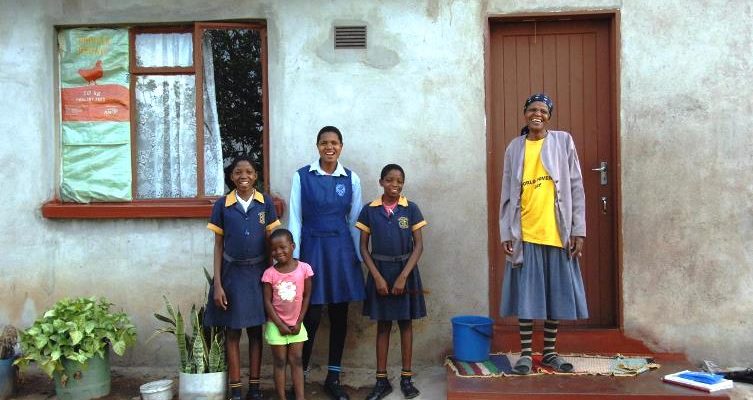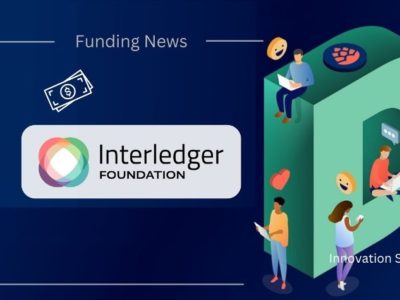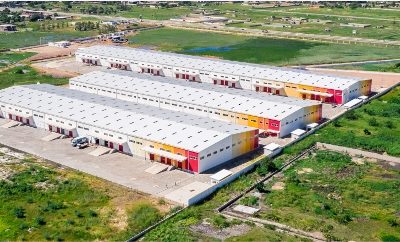The UN’s International Fund for Agricultural Development (IFAD) has announced the launch of RemitSCOPE, a free and interactive web platform providing essential data on global remittances, the hard-earned money sent home by migrant workers from developing countries.
RELATED: Report reveals digital remittances as key to poverty reduction and rural growth
As migration continues to increase worldwide due to the record number of active conflicts, economic instability, and climate change, RemitSCOPE.org seeks to improve access to digital remittances, reduce transfer costs and facilitate access to related financial products, aiming to improve the lives and livelihoods of vulnerable rural communities in low- and middle-income countries (LMICs).
In developing countries, the money sent home by relatives often serves as an economic lifeline for millions of families. RemitSCOPE.org focuses on these countries from the Global South, where access to finance remains a challenge, especially in rural areas where hunger and poverty remain deeply entrenched.
“Remittances not only help make ends meet, but they also cover essentials like education and healthcare while enabling investments in small businesses,” said Pedro de Vasconcelos, Manager of IFAD’s Financing Facility for Remittances. “This creates resilience to economic shocks and drives long-term economic growth,” he added.
Remittances play a crucial role in the global economy. In 2023 alone, LMICs received an estimated US$656 billion in remittances, surpassing the sum of all foreign direct investment and official development assistance combined. The money sent home by migrant workers continues to be the primary financial inflow to these countries.
Significant data gaps persist in the remittance sector
Despite their importance, significant data gaps persist in the remittance sector, limiting understanding of trends and hindering efforts to improve accessibility and reduce transaction costs.
RemitSCOPE offers reliable, up-to-date information sourced from trusted global partners as well as primary research. “The platform aims to empower stakeholders—such as remittance service providers, policymakers, regulators, and development organizations—with insights that help them understand where remittances flow, the costs, market dynamics, accessibility and trends to maximize the business and development opportunities. Ultimately, this web tool aims to make the most of remittance flows as a powerful tool for rural development,” added de Vasconcelos.
“Our team at Onafriq has used RemitSCOPE beta-version to help us understand and profile individual remittance markets in Africa. We have found the information extremely helpful as we continue to grow our business,” said Jessica Nitiema, Knowledge Manager, Onafriq, a digital payments gateway.
“Our members find RemitSCOPE Africa beta-version a useful tool. It enables them to gain a clearer picture of the remittance’s environment in individual countries quickly and clearly. This helps with business and strategic planning and assists with decision making, such as how to enter a specific market. Expanding the platform to other regions like Latin America and the Caribbean is greatly welcomed,” said Veronica Studsgaard, Founder and CEO, International Association of Money Transfer Networks.
Key features of RemitSCOPE
- Country profiles: Covers over 70 nations in Africa and Latin America, highlighting remittance flows, primary sending countries, and accessibility metrics. Future updates will expand coverage to additional regions.
- Interactive dashboards: Explores data on migration, remittance costs, financial inclusion, and market dynamics through customizable visualizations.
- Cost and accessibility insights: Provides detailed data on remittance fees and digital adoption, enabling policymakers and service providers to create affordable, accessible solutions.
- Diagnostics for Africa and Latin America: Includes in-depth analyses of seven African and five Latin American countries, offering actionable recommendations to optimize remittance systems.
- Focus on digitalization: Tracks innovations such as mobile wallets and digital transfers, showcasing their potential to enhance affordability and financial access, especially in rural areas.
- Market transparency: Furnishes insights into regulatory environments, competition, and structural barriers, supporting the development of more inclusive financial ecosystems.
A tool for diverse stakeholders
- Remittance Service Providers: Identifies new markets, tailor services to underserved populations, and promotes competition.
- Policymakers: Leverages data to foster financial inclusion, support formal remittance channels, and drive sector innovation.
- Development agencies: Targets high-impact areas to address poverty and drive economic growth, particularly in rural LMICs.
- Regulators: Develops policies to enhance market transparency, reduce costs, and improve access to formal financial systems.































